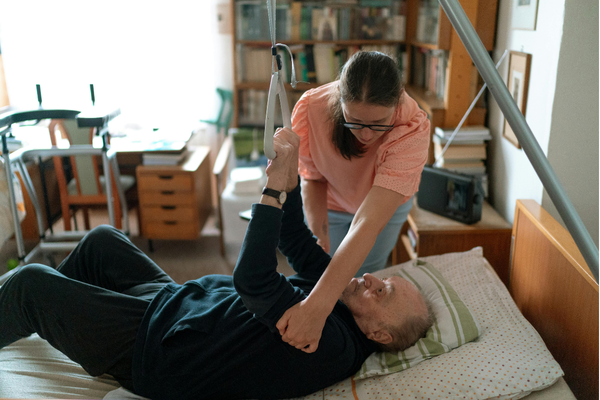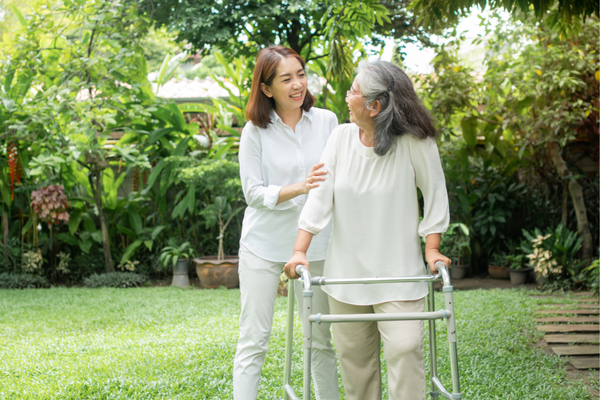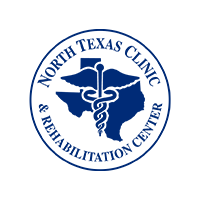Caring for a parent or loved one with health challenges is one of the most meaningful acts of love you can give. But it’s also demanding, and you may not realize how much putting somebody else’s needs before your own is affecting you.
Fortunately, following these health tips for caregivers can help you stay strong, supported, and healthy, allowing you to continue caring for those who need you.
The Impact of Caregiving on Your Health
Being a caregiver can take a toll on both your body and mind.
Long days, physical lifting, lack of sleep, and constant stress can lead to back injuries, frequent illness, and even depression. The longer it goes on, the more likely these issues are to develop into chronic conditions that impact your quality of life.
Many caregivers feel guilty about taking time for themselves. But over time, this can result in a very common but troubling situation known as caregiver burnout. Signs include exhaustion, frequent illness, feelings of hopelessness, anger, and resentment, and withdrawal from others.
This condition can create an unhealthy environment for both you and your loved one. That’s why taking time for yourself is so crucial. The truth is simple: when you are healthier, your loved one is healthier too.
These health tips for caregivers will help you maintain a healthy body and mind.
Daily Health Tips for Caregivers
Little changes can make a big difference in your health, especially while you’re caring for somebody who can’t care for themselves.
These simple daily health tips for caregivers will help reduce pain, keep your strength up, and keep both you and your loved one healthy:
- Lift carefully by bending your knees, not your back, and asking for help when possible.
- Use assistive devices, such as transfer belts or wheelchairs, to prevent falls and help you avoid back and joint strain when moving them.
- Wash your hands frequently to protect yourself and prevent the spread of illnesses.
- Stay hydrated with water throughout the day, especially when busy.
- Eat balanced, nutrient-dense meals and snacks to maintain your energy levels and keep your body strong.
These activities may seem obvious, but they are easy to forget when your focus is on somebody else. Consistent time management ensures that you complete the tasks you need to do while also making time for yourself.

Time Management and Rest
It may feel impossible, but finding time for rest is crucial. Simple strategies include:
- Setting a schedule for caregiving tasks to avoid constant interruptions.
- Adding reminders to your phone or smartwatch to drink, eat, and rest.
- Ask another family member or close friend to step in once a week, even for just an afternoon.
- Allow yourself guilt-free breaks to enjoy hobbies, friends, or quiet time.
Lifestyle Health Tips for Caregivers
Aside from the daily things you need to do to maintain your health, it’s also crucial to follow these guidelines for long-term health.
- See your doctor annually (at least!) for general check-ups and women’s exams, even if it feels hard to make the time.
- Keep your vaccinations up-to-date when possible. Conditions like COVID-19 and Influenza can be dangerous for elderly or immunocompromised people, but vaccines can help prevent them from spreading to your loved ones.
- Stay active with mobility exercises, walking, or low-impact strength training, which can improve energy, reduce stress, and prevent joint pain and muscle weakness.
- Prioritize sleep as much as possible, even if it means short naps during the day.
Your mental health is just as important. Take moments for yourself, whether it’s reading a book, calling a friend, or simply sitting quietly for a few minutes.

Stress Management for Mental Wellness
Caring for others often brings stress, frustration, and even guilt. While some stress is normal, chronic stress can put a significant strain on your health, both physical and mental.
Try these stress relief methods to help you take care of your body and your mind:
- Practicing daily meditation or prayer can reduce feelings of being overwhelmed.
- Deep breathing may slow your heart rate and give you time to manage stress. Trying a method like box breathing can be hugely beneficial for the body and mind.
- Take short breaks outside for fresh air, a change of scenery, and a little bit of sun.
- Exercise releases “happy hormones” that help you deal with stress more effectively. Nature and sunlight help to release them, too. So, during breaks outside, go for a short walk, do some jumping jacks, or bring a yoga mat for some quick yoga flows.
- Writing in a journal helps to release feelings instead of holding them in. Some find solace in writing about their day, both the good and bad. Others prefer to focus on the things they are grateful for. There’s no right or wrong way to journal, and it’s a beneficial exercise for slowing your mind, taking time for yourself, and managing stress.
- Join a support group, either online or in person, to share your experiences with others who understand.
- Talk to a professional or loved one. Being able to talk, laugh, and cry with a good listener can do a world of good for relieving stress.

Resources for Caregivers
One of the hardest aspects of taking care of somebody else, whether you’re a new mom or caring for an aging parent, is doing it alone. Aside from the physical demands of not having help, the isolation can be challenging for your mental wellness.
Fortunately, there are affordable and even free resources available that can lighten your load. Some of them may take some effort to coordinate at first, but the help they may provide is worth it.
- Local aging services or disability organizations may offer respite care, in-home nursing care, meal delivery services, or transportation assistance. Many older adults and people with disabilities will qualify for one or more programs that provide these services at no cost. These programs and insurance providers can also help you secure necessary safety devices for the home, such as walkers, handlebars, and ramps, at little to no cost for you.
- Support hotlines (such as 2-1-1 in many states, including Texas) can connect you with local services, application support, and other assistance.
- Many pharmacies and health departments offer free health screenings and vaccines throughout the year.
- Community health clinics, like ours, often also provide low-cost cash-pay care
- Some local churches offer transportation, meals, and home visitation to provide spiritual guidance and companionship for both you and your loved one.
- Lean on family, friends, and neighbors when possible. The people around you may be able to provide more support than you think. There is never any shame in asking for help when you need it.

Health Tips for Caregivers to Keep You Safe and Strong
Being a caregiver is one of the most selfless acts of love, but it should not come at the cost of your health. By caring for your body, mind, and spirit, you ensure you can be there for your loved one with strength and compassion.
Remember—you don’t have to do it all alone. Resources, support networks, and small everyday health tips for caregivers can help you show up ready to take care of your loved one and yourself.





